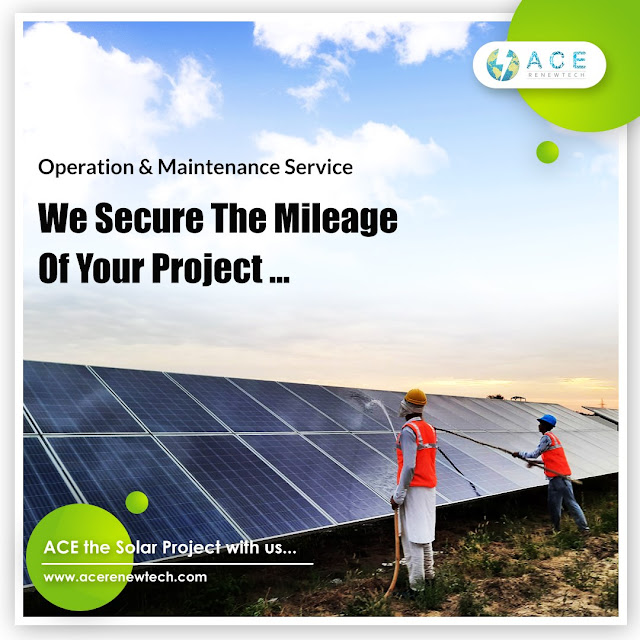According to the statistics of the leading solar PV consultants in India, the amount of sunlight that strikes the earth's surface in 90 minutes is enough to meet the world's energy consumption for a year. And this enormous sun power is utilized to meet our household and industrial power requirements through PV solar systems. Solar energy is a renewable and carbon-free energy source that is economical and pollution-free.
But how do PV solar systems work?
When sunlight hits solar panels,
the sunlight activates the Photovoltaic Cells (PV) on the panels. Each cell
comprises a thin semiconductor layer of two layers, one positively charged and
another negatively charged. The solar energy activates the cell causing the
electrons to set in motion due to the electric field, thereby generating
electricity.
However, this electricity is DC and is unsuitable for household purposes. The DC is then converted to AC through an inverter to provide electricity to our houses.
There are four main components of
a solar PV system:
●
Panels
These are the blue-coloured
panels you are most familiar with. These blue-coloured panels are solar PV
cells having thin semiconductor and is enclosed by a protective layer. Most of
the Solar PV Energy Solution providers
use crystalline silicon in the panels, which has an efficiency of 33% for
converting solar energy into electricity.
●
Inverter
As mentioned earlier, an inverter
converts the DC into AC to make it suitable for domestic purposes. They are the
most expensive part of the solar PV system and have a conversion efficiency of
90% and more.
●
Battery
Batteries are meant to store the
energy generated during the day to be used throughout the night (or on windy
days and winters when the sun is weak) when the system is no more generating
power.
●
Mounting or racking
The PV systems should be mounted
on a robust supporting system (preferably a roof) that can bear wind speeds up
to 150km/hr. Being a leading solar PV consultant in India, we look into every strength detail of the support and
ensure the safety of both the panels and your home.
This is only a brief idea of PV solar cells and how they
work. For more, you can contact your nearest Solar PV Energy Solution provider.
Ref

Comments
Post a Comment